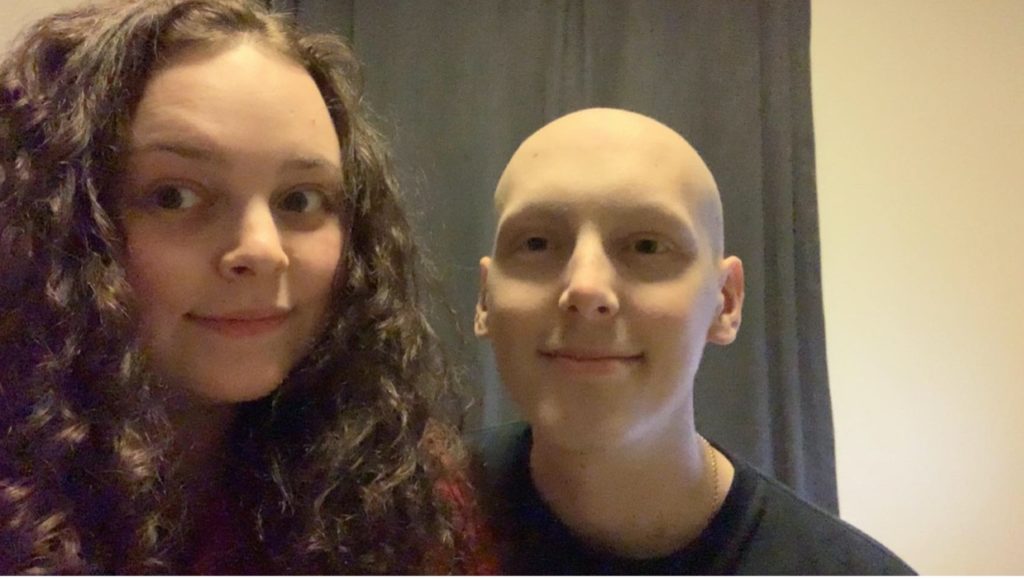“Try your best to support them emotionally, because it’s when they need you the most.”
Carys
“It’s one of the worst things — seeing someone you love in pain and you can’t do anything about it,” says Carys, now 23, and a nurse in Manchester, England. That’s what Carys endured when Oliver, her boyfriend of eight years, battled an aggressive form of osteosarcoma.
From the very beginning of Oliver’s cancer journey — when he didn’t know whether his leg pain was a torn ligament or something much worse — Carys was by his side.
“So, more time went by, and by then I was limping and unable to walk very far,” says Oliver. “I knew something was not right, but my family and I did not know what to do.”
“We were trying to come up with solutions, but nothing was working,” adds Carys, who felt confused and helpless during those first three months.

Once Oliver received an osteosarcoma diagnosis in March 2020, discovering the root cause of his pain brought some sense of relief for the young couple. However, it meant Carys had to watch her best friend go through months of brutal chemotherapy, a limb salvage surgery in which a prosthesis was implanted into his right leg, multiple infections and a bout of sepsis.
It was hard for her to stand by and watch Oliver experience so much pain during his osteosarcoma treatment.
“As a nurse, I always want to find solutions, but this time I couldn’t,” says Carys, who continued to work as the COVID-19 pandemic surged.
Still, she never left his side. Even when Oliver was in the hospital, at his sickest, she stuck by him, juggling her hospital shifts to be with him as much as possible. According to Oliver, Carys helped him focus on the positive.
“I spent a lot of time thinking of possible bad outcomes when I was alone in hospital,” he says. “But Carys, and my family and friends, helped keep me level-headed.”
A Family Affair
Not only did Carys boost Oliver’s spirits, but she helped his mom get him to and from hospital appointments. Her nursing experience came in handy, too, when she helped administer his antibiotics intravenously for six weeks — something he couldn’t do on his own.
This physical and emotional support helped him come out on the other side, stronger and eager to get back to his life before cancer. It’s an experience that has brought the two of them closer than ever before. They have learned never to take their love for each other for granted. And, on Christmas Eve 2020, they got engaged.
Oliver’s cancer journey has also changed Carys’ outlook as a nurse.
“You always believe what the doctors say, but sometimes you have to listen to the patient because they know their bodies better than anyone,” she says. “I think it’s also made me a better person — being able to support people emotionally as well. And I’m only young myself, so I’ve not got much experience in nursing, but this has changed a lot about how I support people.”
Carys’s biggest advice for other people who are experiencing a life-threatening diagnosis with their partner is to listen rather than try and solve all of the problems.
“No one can do everything for one person,” she says. “Try your best to support them emotionally, because it’s when they need you the most.”
